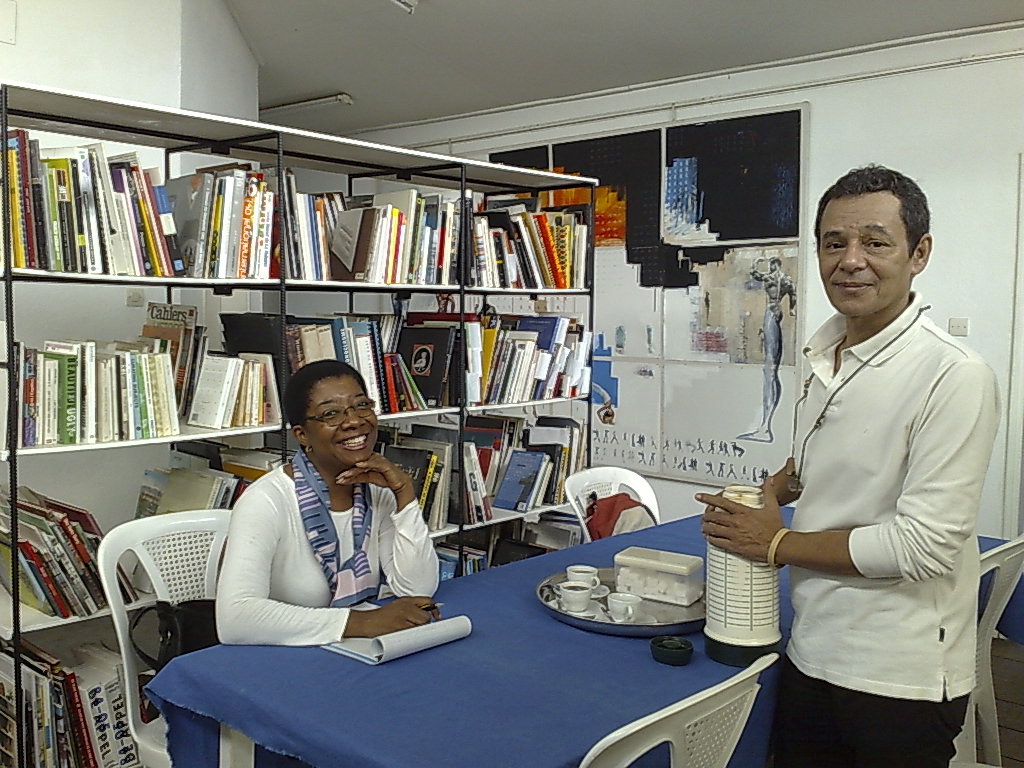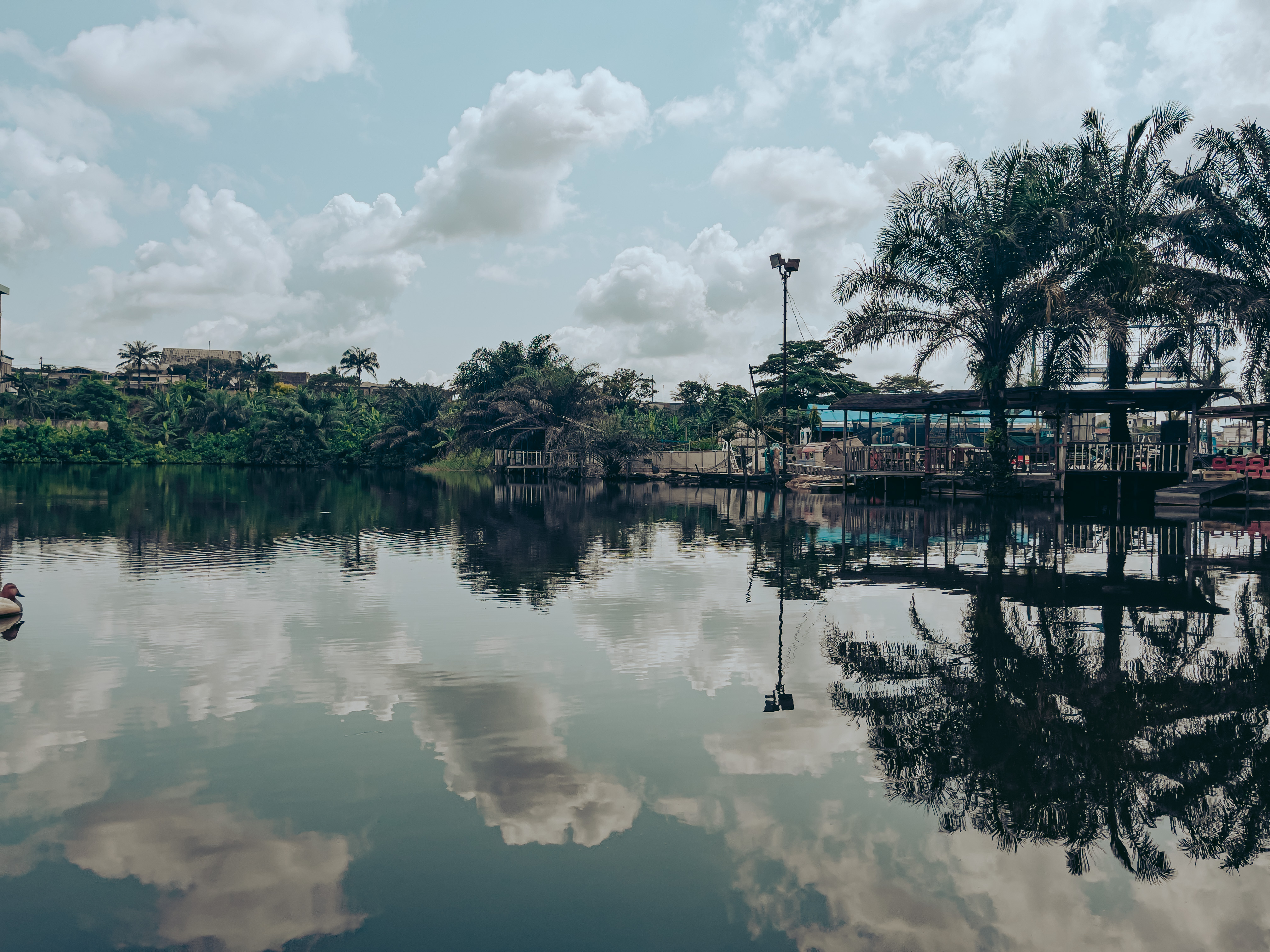|
Palace Of The Kings Bell
The Palace of King Bell situated in Douala is a building constructed in 1905 by the Germans for King Auguste Manga Ndumbe (King Bell). The building is also known as ''La Pagode''; this name comes from the French writer Louis-Ferdinand Céline, who remained in Douala in 1916-17, who calls it such in his famous novel ''Voyage au bout de la nuit'' (''Journey to the End of the Night''). History Ascending to the throne in 1897, Auguste Manga Ndumbe created a large plantation of cocoa and palm oil in Mungo on the effluents of the Kamerun-Wui river, so as to compensate for the decline of the Douala economy based on the trade monopoly with the hinterland. He also carried out significant real estate investments in Bonanjo. At that time, the fortune of Auguste Manga exceeded by far that of his contemporaries and those of Akwa, Deïdo, and Bonabéri. He only lived in this residence for three years, dying in 1908. His son and heir Rudolph Douala Manga Bell reigned from 1908 to 1914, with ... [...More Info...] [...Related Items...] OR: [Wikipedia] [Google] [Baidu] |
Palace
A palace is a grand residence, especially a royal residence, or the home of a head of state or some other high-ranking dignitary, such as a bishop or archbishop. The word is derived from the Latin name palātium, for Palatine Hill in Rome which housed the Roman Empire, Imperial residences. Most European languages have a version of the term (''palais'', ''palazzo'', ''palacio'', etc.), and many use it for a wider range of buildings than English. In many parts of Europe, the equivalent term is also applied to large private houses in cities, especially of the aristocracy; often the term for a large country house is different. Many historic palaces are now put to other uses such as parliaments, museums, hotels, or office buildings. The word is also sometimes used to describe a lavishly ornate building used for public entertainment or exhibitions such as a movie palace. A palace is distinguished from a castle while the latter clearly is fortified or has the style of a fortification ... [...More Info...] [...Related Items...] OR: [Wikipedia] [Google] [Baidu] |
Manga Ndumbe Bell
Auguste Manga Ndumbe Bell (c. 1851 – September 2, 1908) was a leader of the Duala people of southern Cameroon from 1897 to 1908 during the period after the German Empire, German colonialists assumed control of the region as the Kamerun colony. Background The first European records of the people of the Douala region around the Wouri estuary noted that they were engaged in fishing and agriculture to some extent, but primarily were traders with the people of the interior via the Wouri River and its tributaries, and via the Dibamba River, Dibamba, Kwa Kwa and Mungo River, Cameroon, Mungo rivers. In the 19th century they were bartering palm oil, palm kernels and ivory for European goods. Their leaders, whom the Europeans called "kings", came from the two lineages of Bell and Akwa. Early years Manga came from the Bell lineage, son of King Ndumbe Lobe Bell. He was English people, English-educated. In the period leading up to the German annexation, his family was in the ascendanc ... [...More Info...] [...Related Items...] OR: [Wikipedia] [Google] [Baidu] |
Doual'art
doual'art is a non profit cultural organisation and art centre founded in 1991 in Douala, Cameroon and focussed on new urban practices of African cities. History doual'art was registered as a non profit organization in 1992 and it was established by Marilyn Douala Bell and Didier Schaub. In 1995 they created ''Espace doual'art'', an exhibition space and gallery in the neighbourhood of Bonanjo in Douala. In 1996 they produced La Nouvelle Liberté by Joseph-Francis Sumégné, considered a landmark in Douala. In 2005 they organized the first Ars&Urbis event, an international symposium to foster discussion and theory about the contribution of art to urban transformation. The event led to the establishment of the SUD Salon Urbain de Douala, a triennial exhibition focused on public art. In December 2007 it launched the first edition of the SUD Salon Urbain de Douala. In December 2010 the second edition of SUD Salon Urbain de Douala took place. The salon produces the itinerant exhibi ... [...More Info...] [...Related Items...] OR: [Wikipedia] [Google] [Baidu] |
Douala
Douala is the largest city in Cameroon and its economic capital. It is also the capital of Cameroon's Littoral Region (Cameroon), Littoral Region. Home to Central Africa's largest port and its major international airport, Douala International Airport (DLA), it is the commercial and economic capital of Cameroon and the entire Economic Community of Central African States, CEMAC region comprising Gabon, Congo, Chad, Equatorial Guinea, Central African Republic and Cameroon. Consequently, it handles most of the country's major exports, such as Petroleum, oil, Cocoa bean, cocoa and coffee, timber, metals and fruits. , the city and its surrounding area had an estimated population of 5,768,400. The city sits on the estuary of Wouri River and its climate is tropical. History The first Europeans to visit the area were the Portuguese people, Portuguese in about 1472. At the time, the estuary of Wouri River was known as the Rio dos Camarões (Shrimp River). By 1650, it had become the site ... [...More Info...] [...Related Items...] OR: [Wikipedia] [Google] [Baidu] |
Cameroon
Cameroon (; french: Cameroun, ff, Kamerun), officially the Republic of Cameroon (french: République du Cameroun, links=no), is a country in west-central Africa. It is bordered by Nigeria to the west and north; Chad to the northeast; the Central African Republic to the east; and Equatorial Guinea, Gabon and the Republic of the Congo to the south. Its coastline lies on the Bight of Biafra, part of the Gulf of Guinea and the Atlantic Ocean. Due to its strategic position at the crossroads between West Africa and Central Africa, it has been categorized as being in both camps. Its nearly 27 million people speak 250 native languages. Early inhabitants of the territory included the Sao civilisation around Lake Chad, and the Baka hunter-gatherers in the southeastern rainforest. Portuguese explorers reached the coast in the 15th century and named the area ''Rio dos Camarões'' (''Shrimp River''), which became ''Cameroon'' in English. Fulani soldiers founded the Adamawa Emirate ... [...More Info...] [...Related Items...] OR: [Wikipedia] [Google] [Baidu] |
Louis-Ferdinand Céline
Louis Ferdinand Auguste Destouches (27 May 1894 – 1 July 1961), better known by the pen name Louis-Ferdinand Céline ( , ) was a French novelist, polemicist and physician. His first novel ''Journey to the End of the Night'' (1932) won the ''Prix Renaudot'' but divided critics due to the author's pessimistic depiction of the human condition and his writing style based on working class speech. In subsequent novels such as ''Death on the Installment Plan'' (1936), '' Guignol's Band'' (1944) and ''Castle to Castle'' (1957) Céline further developed an innovative and distinctive literary style. Maurice Nadeau wrote: "What Joyce did for the English language…what the surrealists attempted to do for the French language, Céline achieved effortlessly and on a vast scale." From 1937 Céline wrote a series of antisemitic polemical works in which he advocated a military alliance with Nazi Germany. He continued to publicly espouse antisemitic views during the German occupation of France, ... [...More Info...] [...Related Items...] OR: [Wikipedia] [Google] [Baidu] |
Journey To The End Of The Night
''Journey to the End of the Night'' (french: Voyage au bout de la nuit, 1932) is the first novel by Louis-Ferdinand Céline. This semi-autobiographical work follows the adventures of Ferdinand Bardamu in the World War I, colonial Africa, the United States and the poor suburbs of Paris where he works as a doctor. The novel won the ''Prix Renaudot'' in 1932 but divided critics due to the author's pessimistic depiction of the human condition and his innovative writing style based on working class speech, slang and neologisms. It is now widely considered to be one of the greatest novels of the twentieth century. Background Céline began writing ''Journey to the End of the Night'', his first novel, in 1929 while he was working as a doctor in a public clinic in the working class Paris suburb of Clichy, Hauts-de-Seine, Clichy. The novel draws on his experience in the French cavalry during World War One, his time in colonial Africa as an employee of a French forestry company, his 19 ... [...More Info...] [...Related Items...] OR: [Wikipedia] [Google] [Baidu] |
Rudolf Duala Manga Bell
Rudolf Duala Manga Bell (1873 – 8 August 1914) was a Duala king and resistance leader in the German colony of Kamerun (Cameroon). After being educated in both Kamerun and Europe, he succeeded his father Manga Ndumbe Bell on 2 September 1908. Bell styled himself after European rulers and at first generally supported the colonial German authorities. He was quite wealthy and educated, although his father left him a substantial debt. In 1910 the German Reichstag developed a plan to relocate the Duala people living along the river, to be moved inland to allow for wholly European riverside settlements. Manga Bell became the leader of pan-Duala resistance to the policy. He and the other chiefs at first pressured the administration through letters, petitions, and legal arguments, but these were ignored or rebutted. Manga Bell turned to other European governments for aid, and he sent representatives to the leaders of other Cameroonian peoples to suggest the overthrow of the German r ... [...More Info...] [...Related Items...] OR: [Wikipedia] [Google] [Baidu] |
Alexandre Douala Manga Bell
Alexandre Douala Manga Bell (3 December 1897 – 19 September 1966 in Douala) was head of the Duala people in Cameroon, German officer and French politician. Biography Youth in Germany Alexandre Douala Manga Bell - then named Alexander Duala Manga Bell - was born on 3 December 1897 in the Douala area as the eldest son of King Rudolf Duala Manga Bell. Cameroon was a German colony at that time. At the age of four Alexander was brought to Germany for education. In the First World War, in 1915, he fought against the British and the French as a German officer at Gallipoli The Gallipoli peninsula (; tr, Gelibolu Yarımadası; grc, Χερσόνησος της Καλλίπολης, ) is located in the southern part of East Thrace, the European part of Turkey, with the Aegean Sea to the west and the Dardanelles ... in Turkey, which was allied with Germany. One year before in Cameroon, his father, Rudolf Manga Bell, had been executed after a conflict with the German colonial adm ... [...More Info...] [...Related Items...] OR: [Wikipedia] [Google] [Baidu] |
Kamerun
Kamerun was an African colony of the German Empire from 1884 to 1916 in the region of today's Republic of Cameroon. Kamerun also included northern parts of Gabon and the Congo with western parts of the Central African Republic, southwestern parts of Chad and far eastern parts of Nigeria. History Years preceding colonization (1868–1883) The first German trading post in the Duala area on the Kamerun River delta was established in 1868 by the Hamburg trading company . The firm's primary agent in Gabon, Johannes Thormählen, expanded activities to the Kamerun River delta. In 1874, together with the Woermann agent in Liberia, Wilhelm Jantzen, the two merchants founded their own company, Jantzen & Thormählen there. Both of these West Africa houses expanded into shipping with their own sailing ships and steamers and inaugurated scheduled passenger and freight service between Hamburg and Duala. These companies and others obtained extensive acreage from local chiefs and bega ... [...More Info...] [...Related Items...] OR: [Wikipedia] [Google] [Baidu] |



